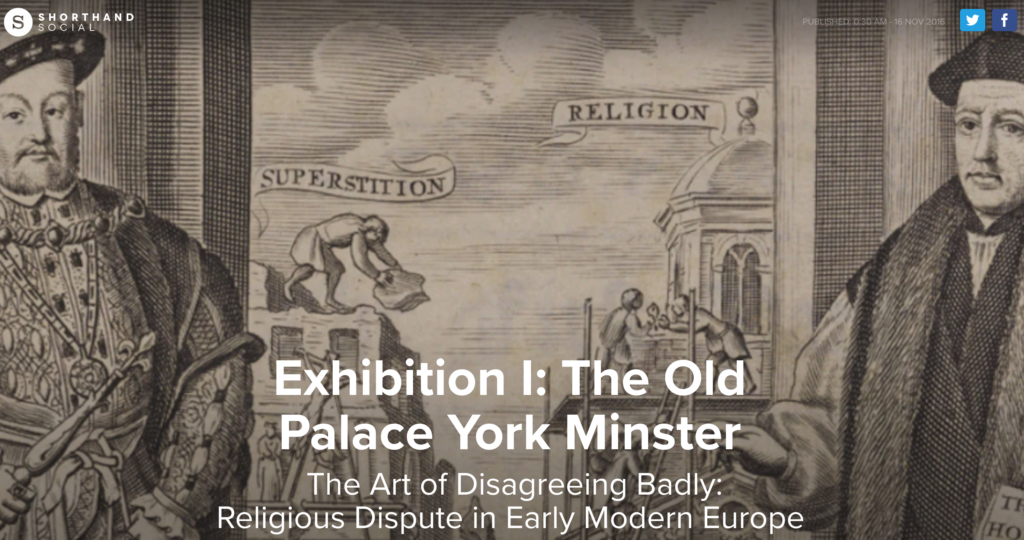Art of Disagreeing Badly: Religious Dispute in Early Modern Europe

The exhibition “The Art of Disagreeing Badly: Religious Dispute in Early Modern Europe” is now permanently available on an interactive website. The sixteenth and seventeenth centuries were an age of confessional polemic. After the beginning of the Reformation in 1517, church history presented a challenge to each confession in its own right. Protestants aimed to explain, through examples from history, why error had come into the Church after apostolic times and after centuries of decadence the Reformation had become necessary. Catholics argued, on the other hand, that the Church had always remained the same. Protestants also doubted specific key events in church history. They asserted, for example, that St. Peter had never been in Rome, so that the Petrine tradition, on which the papacy based its own primacy, was invalid. Catholics, of course, never doubted Peter’s stay in Rome. Many other such polemical arguments were thrown back and forth, making church history a hot battleground of the confessional struggle. A large number of the books exhibited are from the collection of Tobie Matthew, Archbishop of York (1546–1628).
